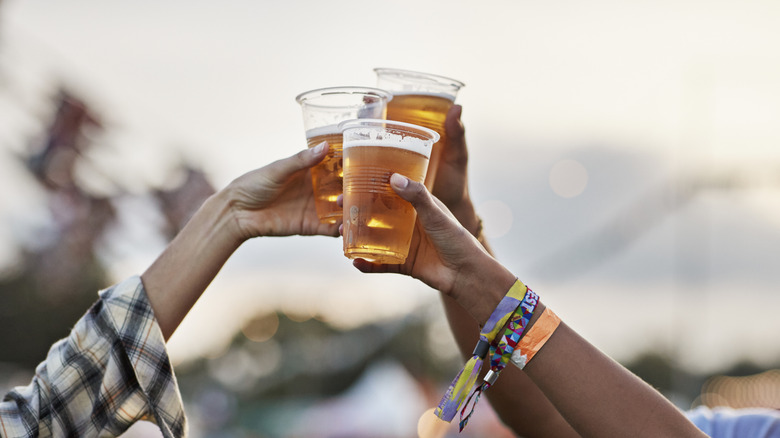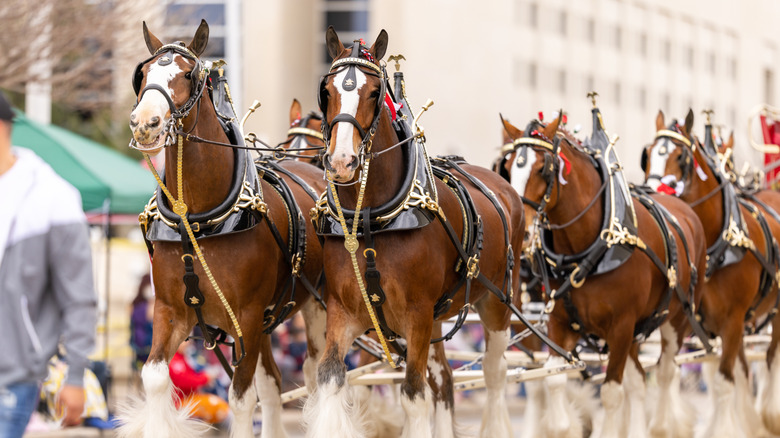The Alcohol Company That Dominated Super Bowl Ads For 3 Decades
Budweiser has already aired a cute teaser for the 2025 Super Bowl, joining other notable pre-game commercials like the Uber Eats ad featuring Charli XCX and Martha Stewart. But Bud's parent company no longer has a monopoly on Super Bowl promos. For over 30 years, from 1989 until 2022, Anheuser-Busch paid for exclusivity rights that meant it was the only alcohol company allowed to air commercials during the big game. Its iconic ads are probably seared into your brain, from the majestic Clydesdale horses to the singing frogs that debuted in the late '90s.
Nowadays, however, other beer and spirit companies (with deep pockets) are free to create ads for the Super Bowl and try to land on the ranking of the best and worst food commercials. Molson Coors, for instance, was one of the first competitors to dive headfirst into the open opportunity when the 2023 Super Bowl was first opened to non-Bud ads. But why did Anheuser-Busch end what seemed like a good thing? The likely answer is a familiar one: money.
Changing consumer attitudes made Anheuser-Busch pivot
A younger generation with different attitudes towards beer and alcohol consumption in general might be the cause of Anheuser-Busch terminating their contract. At least that's what Bart Watson, chief economist for the Brewers Association, told the Associated Press. Super Bowl ads are amazingly costly, going for upwards of $6 million for a 30-second spot, and A-B was paying for exclusivity on top of that. Watson speculated that the company may have decided to diversify its advertising strategy. That's not to say that Budweiser et al. are a missing presence during the Super Bowl ... in fact, Anheuser-Busch was still the most-prominent alcohol advertiser during the 2023 game, with three minutes and 30 seconds of commercial space.
While A-B and Budweiser in particular have given us unforgettable commercials over the last decades, consumers definitely win with the ending of the exclusivity agreement. More competitors in the Super Bowl commercial game — which is arguably more exciting than a repeat Chiefs-Eagles matchup — means that we get a greater variety of ads to enjoy as we fill in betting squares and scarf down chicken wings. Sounds like a winning proposition!

